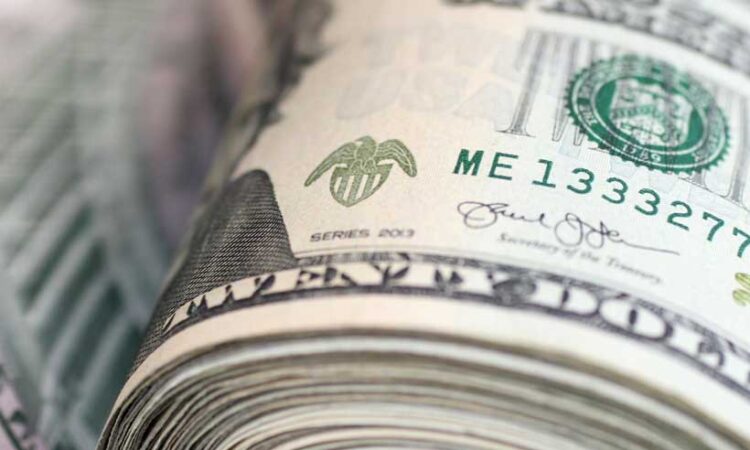
The US dollar has been the dominant global reserve currency for decades and during this time, plenty of competitors have emerged and vanquished. Also, it’s a fact, the dominance of dollar has been so widespread that a considerable number of individuals had never contemplated the possible outcomes of forsaking it in favor of an alternative. However, recent developments in international order might suggest that the US dollar’s position is precarious this time. Considering his concerns over eroding away of US dollar’s dominance, Fareed Zakaria, political commentator, in a recent episode of his show on CNN said, “If the US dollar’s global supremacy erodes, America will face a reckoning like none before”. In such circumstances, the recent developments in the international system do insinuate a threat to the greenback, however, it engenders many questions as well. One inevitable question that could not be set aside is: what these developments would mean to global capitalism?
Historically, the United States’ dollar has been ruling the financial world since the culmination of World War II and with the subsequent inception of the Bretton Woods System in the mid-1940s as an effort to stabilize the international monetary system. This system created collective international currency exchange regime pegged to the U.S. dollar which was, in turn, pegged to the price of gold. However, this Bretton Woods system collapsed due to the increasing competitiveness of European and Japanese exports with the US exports, meaning it was importing more than it was exporting. This, coupled with rising inflation and a decrease in US gold reserves, put further pressure on the dollar’s peg to gold. Consequently, In 1971, President Nixon announced his new economic policy, “Nixon Shock”, which ceased the direct convertibility of U.S. dollars to gold that ended both the gold standard and the limit on the amount of currency that could be printed.
In spite of this event, the dollar remained the world’s reserve currency or maybe there existed no viable reserve-currency alternatives at that time. However, the situation might seem different today as many nations – Russia, China, Iran, India, Brazil, Argentina, and Saudi Arabia – have accelerated efforts in recent months toward arrangements to reduce their dependence on the dollar. Recently, the Russian president has endorsed “yuan” as the currency of choice at the three-day summit of Chinese president, Xi Jinping. In his talks, Putin said, “We are in favor of using the Chinese yuan for settlements between Russia and the countries of Asia, Africa and Latin America”. Apart from this, speculations are being made that the BRICS might come up with “new currency” as better alternative reserve currency which would be pegged to the value of gold. There could be several reasons behind these clumsy moves, however, one reason that couldn’t be shunned is the Ukrainian war. According to political economists and sanctions analysts, the United States’ dominance over the global financial system and its ability to weaponize it, raises concerns for other nations that the US could anytime use the power of its currency to target them the way it has sanctioned Russia. This maneuvers them to abridge their dependence on the dollar and subsequently, propels them to test other alternatives to reduce the dollar’s hegemony.
As these nations trot toward finding other alternatives for the global reserve currency, what edge does it provide to global capitalism?
The dollar dominance has been steadily shrinking since 1990 and today, as per the IMF’s Currency Composition of Official Foreign Reserves data, the US dollar holds the 60 percent of the world’s reserve currency assets. It has become increasingly problematic for economies worldwide. Therefore, de-dollarization, or moving away from the US dollar as the dominant global reserve currency can potentially have numerous advantages for global capitalism. To begin with, this advancement could help in diminishing the centralization of economic power in the hands of one nation i.e., the United States of America. Moreover, by decentralizing the currency and financial systems, utilized in international trade and finance, nations could reduce their susceptibility to the economic and political risks conjoined with the US dollar, such as US sanctions and market capriciousness, that could easily be discerned in the form of sanctions on Russia. Additionally, de-dollarization could foster financial stability and potency by diminishing the impact of the US dollar and other associated risks on the international financial system. As shown during the financial crisis of 2008, the global financial system’s interconnectivity can cause financial contagion and instability. Therefore, De-dollarization and currency diversification could lessen the probability and severity of future financial crises by promoting a more diverse and decentralized financial system. Moreover, de-dollarization can foster greater economic and financial inclusivity by reducing barriers to entry for countries and businesses that may have been excluded from the US-dominated financial system which would result in ameliorating the competitiveness, leading to better products and services, and lower prices for consumers. This can potentially result in increased economic growth and development, particularly in emerging markets.
No doubt, past endeavors to dethrone the dollar ended in whimper and even today, this de-dollarization “will not happen overnight,” as French columnist Le Figaro Girard has rightly argued, but the current trend to dump the greenback is “obviously irreversible”. Therefore, the process of de-dollarization is complex and protracted however, this time, there might exist multiple reasons for a country to move away from using the US dollar as a reserve currency. From the latest developments and factors, it suggests that the US dollar’s hegemony might be under threat and burgeoning challenges to its status could lead to a gradual shift towards a multipolar global financial system or some other alternatives like shifting to multi-currency global economy. Also, while the threat to the dollar’s hegemony is imminent, this won’t afflict global capitalism; rather it would bolster the growth of global capitalism with far-reaching implications. Therefore, as the US continues to grapple with these challenges posed by the contenders, it will be intriguing to see how these developments unfold and shape the future of global capitalism.



